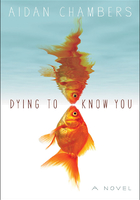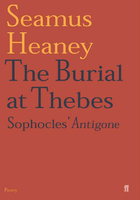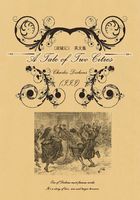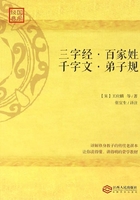Ralph Nickleby, baffled by his Nephew in his late Design, hatches a Scheme of Retaliation which Accident suggests to him, and takes into his Counsels a tried Auxiliary
The course which these adventures shape out for themselves, and imperatively call upon the historian to observe, now demands that they should revert to the point they attained previously to the commencement of the last chapter, when Ralph Nickleby and Arthur Gride were left together in the house where death had so suddenly reared his dark and heavy banner.
With clenched hands, and teeth ground together so firm and tight that no locking of the jaws could have fixed and riveted them more securely, Ralph stood, for some minutes, in the attitude in which he had last addressed his nephew: breathing heavily, but as rigid and motionless in other respects as if he had been a brazen statue. After a time, he began, by slow degrees, as a man rousing himself from heavy slumber, to relax. For a moment he shook his clasped fist towards the door by which Nicholas had disappeared; and then thrusting it into his breast, as if to repress by force even this show of passion, turned round and confronted the less hardy usurer, who had not yet risen from the ground.
The cowering wretch, who still shook in every limb, and whose few grey hairs trembled and quivered on his head with abject dismay, tottered to his feet as he met Ralph's eye, and, shielding his face with both hands, protested, while he crept towards the door, that it was no fault of his.
'Who said it was, man?' returned Ralph, in a suppressed voice. 'Who said it was?'
'You looked as if you thought I was to blame,' said Gride, timidly.
'Pshaw!' Ralph muttered, forcing a laugh. 'I blame him for not living an hour longer. One hour longer would have been long enough. I blame no one else.'
'N-n-no one else?' said Gride.
'Not for this mischance,' replied Ralph. 'I have an old score to clear with that young fellow who has carried off your mistress; but that has nothing to do with his blustering just now, for we should soon have been quit of him, but for this cursed accident.'
There was something so unnatural in the calmness with which Ralph Nickleby spoke, when coupled with his face, the expression of the features, to which every nerve and muscle, as it twitched and throbbed with a spasm whose workings no effort could conceal, gave, every instant, some new and frightful aspect-there was something so unnatural and ghastly in the contrast between his harsh, slow, steady voice (only altered by a certain halting of the breath which made him pause between almost every word like a drunken man bent upon speaking plainly), and these evidences of the most intense and violent passion, and the struggle he made to keep them under; that if the dead body which lay above had stood, instead of him, before the cowering Gride, it could scarcely have presented a spectacle which would have terrified him more.
'The coach,' said Ralph after a time, during which he had struggled like some strong man against a fit. 'We came in a coach. Is it waiting?'
Gride gladly availed himself of the pretext for going to the window to see. Ralph, keeping his face steadily the other way, tore at his shirt with the hand which he had thrust into his breast, and muttered in a hoarse whisper:
'Ten thousand pounds! He said ten thousand! The precise sum paid in but yesterday for the two mortgages, and which would have gone out again, at heavy interest, tomorrow. If that house has failed, and he the first to bring the news!-Is the coach there?'
'Yes, yes,' said Gride, startled by the fierce tone of the inquiry. 'It's here. Dear, dear, what a fiery man you are!'
'Come here,' said Ralph, beckoning to him. 'We mustn't make a show of being disturbed. We'll go down arm in arm.'
'But you pinch me black and blue,' urged Gride.
Ralph let him go impatiently, and descending the stairs with his usual firm and heavy tread, got into the coach. Arthur Gride followed. After looking doubtfully at Ralph when the man asked where he was to drive, and finding that he remained silent, and expressed no wish upon the subject, Arthur mentioned his own house, and thither they proceeded.
On their way, Ralph sat in the furthest corner with folded arms, and uttered not a word. With his chin sunk upon his breast, and his downcast eyes quite hidden by the contraction of his knotted brows, he might have been asleep for any sign of consciousness he gave until the coach stopped, when he raised his head, and glancing through the window, inquired what place that was.
'My house,' answered the disconsolate Gride, affected perhaps by its loneliness. 'Oh dear! my house.'
'True,' said Ralph 'I have not observed the way we came. I should like a glass of water. You have that in the house, I suppose?'
'You shall have a glass of-of anything you like,' answered Gride, with a groan. 'It's no use knocking, coachman. Ring the bell!'
The man rang, and rang, and rang again; then, knocked until the street re-echoed with the sounds; then, listened at the keyhole of the door. Nobody came. The house was silent as the grave.
'How's this?' said Ralph impatiently.
'Peg is so very deaf,' answered Gride with a look of anxiety and alarm. 'Oh dear! Ring again, coachman. She SEES the bell.'
Again the man rang and knocked, and knocked and rang again. Some of the neighbours threw up their windows, and called across the street to each other that old Gride's housekeeper must have dropped down dead. Others collected round the coach, and gave vent to various surmises; some held that she had fallen asleep; some, that she had burnt herself to death; some, that she had got drunk; and one very fat man that she had seen something to eat which had frightened her so much (not being used to it) that she had fallen into a fit. This last suggestion particularly delighted the bystanders, who cheered it rather uproariously, and were, with some difficulty, deterred from dropping down the area and breaking open the kitchen door to ascertain the fact. Nor was this all. Rumours having gone abroad that Arthur was to be married that morning, very particular inquiries were made after the bride, who was held by the majority to be disguised in the person of Mr Ralph Nickleby, which gave rise to much jocose indignation at the public appearance of a bride in boots and pantaloons, and called forth a great many hoots and groans. At length, the two money-lenders obtained shelter in a house next door, and, being accommodated with a ladder, clambered over the wall of the back-yard-which was not a high one-and descended in safety on the other side.
'I am almost afraid to go in, I declare,' said Arthur, turning to Ralph when they were alone. 'Suppose she should be murdered. Lying with her brains knocked out by a poker, eh?'
'Suppose she were,' said Ralph. 'I tell you, I wish such things were more common than they are, and more easily done. You may stare and shiver. I do!'
He applied himself to a pump in the yard; and, having taken a deep draught of water and flung a quantity on his head and face, regained his accustomed manner and led the way into the house: Gride following close at his heels.
It was the same dark place as ever: every room dismal and silent as it was wont to be, and every ghostly article of furniture in its customary place. The iron heart of the grim old clock, undisturbed by all the noise without, still beat heavily within its dusty case; the tottering presses slunk from the sight, as usual, in their melancholy corners; the echoes of footsteps returned the same dreary sound; the long-legged spider paused in his nimble run, and, scared by the sight of men in that his dull domain, hung motionless on the wall, counterfeiting death until they should have passed him by.
From cellar to garret went the two usurers, opening every creaking door and looking into every deserted room. But no Peg was there. At last, they sat them down in the apartment which Arthur Gride usually inhabited, to rest after their search.
'The hag is out, on some preparation for your wedding festivities, I suppose,' said Ralph, preparing to depart. 'See here! I destroy the bond; we shall never need it now.'
Gride, who had been peering narrowly about the room, fell, at that moment, upon his knees before a large chest, and uttered a terrible yell.
'How now?' said Ralph, looking sternly round.
'Robbed! robbed!' screamed Arthur Gride.
'Robbed! of money?'
'No, no, no. Worse! far worse!'
'Of what then?' demanded Ralph.
'Worse than money, worse than money!' cried the old man, casting the papers out of the chest, like some beast tearing up the earth. 'She had better have stolen money-all my money-I haven't much! She had better have made me a beggar than have done this!'
'Done what?' said Ralph. 'Done what, you devil's dotard?'
Still Gride made no answer, but tore and scratched among the papers, and yelled and screeched like a fiend in torment.
'There is something missing, you say,' said Ralph, shaking him furiously by the collar. 'What is it?'
'Papers, deeds. I am a ruined man. Lost, lost! I am robbed, I am ruined! She saw me reading it-reading it of late-I did very often-She watched me, saw me put it in the box that fitted into this, the box is gone, she has stolen it. Damnation seize her, she has robbed me!'
'Of WHAT?' cried Ralph, on whom a sudden light appeared to break, for his eyes flashed and his frame trembled with agitation as he clutched Gride by his bony arm. 'Of what?'
'She don't know what it is; she can't read!' shrieked Gride, not heeding the inquiry. 'There's only one way in which money can be made of it, and that is by taking it to her. Somebody will read it for her, and tell her what to do. She and her accomplice will get money for it and be let off besides; they'll make a merit of it-say they found it-knew it-and be evidence against me. The only person it will fall upon is me, me, me!'
'Patience!' said Ralph, clutching him still tighter and eyeing him with a sidelong look, so fixed and eager as sufficiently to denote that he had some hidden purpose in what he was about to say. 'Hear reason. She can't have been gone long. I'll call the police. Do you but give information of what she has stolen, and they'll lay hands upon her, trust me. Here! Help!'
'No, no, no!' screamed the old man, putting his hand on Ralph's mouth. 'I can't, I daren't.'
'Help! help!' cried Ralph.
'No, no, no!' shrieked the other, stamping on the ground with the energy of a madman. 'I tell you no. I daren't, I daren't!'
'Daren't make this robbery public?' said Ralph.
'No!' rejoined Gride, wringing his hands. 'Hush! Hush! Not a word of this; not a word must be said. I am undone. Whichever way I turn, I am undone. I am betrayed. I shall be given up. I shall die in Newgate!'
With frantic exclamations such as these, and with many others in which fear, grief, and rage, were strangely blended, the panic-stricken wretch gradually subdued his first loud outcry, until it had softened down into a low despairing moan, chequered now and then by a howl, as, going over such papers as were left in the chest, he discovered some new loss. With very little excuse for departing so abruptly, Ralph left him, and, greatly disappointing the loiterers outside the house by telling them there was nothing the matter, got into the coach, and was driven to his own home.
A letter lay on his table. He let it lie there for some time, as if he had not the courage to open it, but at length did so and turned deadly pale.
'The worst has happened,' he said; 'the house has failed. I see. The rumour was abroad in the city last night, and reached the ears of those merchants. Well, well!'
He strode violently up and down the room and stopped again.
'Ten thousand pounds! And only lying there for a day-for one day! How many anxious years, how many pinching days and sleepless nights, before I scraped together that ten thousand pounds!-Ten thousand pounds! How many proud painted dames would have fawned and smiled, and how many spendthrift blockheads done me lip-service to my face and cursed me in their hearts, while I turned that ten thousand pounds into twenty! While I ground, and pinched, and used these needy borrowers for my pleasure and profit, what smooth-tongued speeches, and courteous looks, and civil letters, they would have given me! The cant of the lying world is, that men like me compass our riches by dissimulation and treachery: by fawning, cringing, and stooping. Why, how many lies, what mean and abject evasions, what humbled behaviour from upstarts who, but for my money, would spurn me aside as they do their betters every day, would that ten thousand pounds have brought me in! Grant that I had doubled it-made cent. per cent.-for every sovereign told another-there would not be one piece of money in all the heap which wouldn't represent ten thousand mean and paltry lies, told, not by the money-lender, oh no! but by the money-borrowers, your liberal, thoughtless, generous, dashing folks, who wouldn't be so mean as save a sixpence for the world!'
Striving, as it would seem, to lose part of the bitterness of his regrets in the bitterness of these other thoughts, Ralph continued to pace the room. There was less and less of resolution in his manner as his mind gradually reverted to his loss; at length, dropping into his elbow-chair and grasping its sides so firmly that they creaked again, he said:
'The time has been when nothing could have moved me like the loss of this great sum. Nothing. For births, deaths, marriages, and all the events which are of interest to most men, have (unless they are connected with gain or loss of money) no interest for me. But now, I swear, I mix up with the loss, his triumph in telling it. If he had brought it about,-I almost feel as if he had,-I couldn't hate him more. Let me but retaliate upon him, by degrees, however slow-let me but begin to get the better of him, let me but turn the scale-and I can bear it.'
His meditations were long and deep. They terminated in his dispatching a letter by Newman, addressed to Mr Squeers at the Saracen's Head, with instructions to inquire whether he had arrived in town, and, if so, to wait an answer. Newman brought back the information that Mr Squeers had come by mail that morning, and had received the letter in bed; but that he sent his duty, and word that he would get up and wait upon Mr Nickleby directly.
The interval between the delivery of this message, and the arrival of Mr Squeers, was very short; but, before he came, Ralph had suppressed every sign of emotion, and once more regained the hard, immovable, inflexible manner which was habitual to him, and to which, perhaps, was ascribable no small part of the influence which, over many men of no very strong prejudices on the score of morality, he could exert, almost at will.
'Well, Mr Squeers,' he said, welcoming that worthy with his accustomed smile, of which a sharp look and a thoughtful frown were part and parcel: 'how do YOU do?'
'Why, sir,' said Mr Squeers, 'I'm pretty well. So's the family, and so's the boys, except for a sort of rash as is a running through the school, and rather puts 'em off their feed. But it's a ill wind as blows no good to nobody; that's what I always say when them lads has a wisitation. A wisitation, sir, is the lot of mortality. Mortality itself, sir, is a wisitation. The world is chock full of wisitations; and if a boy repines at a wisitation and makes you uncomfortable with his noise, he must have his head punched. That's going according to the Scripter, that is.'
'Mr Squeers,' said Ralph, drily.
'Sir.'
'We'll avoid these precious morsels of morality if you please, and talk of business.'
'With all my heart, sir,' rejoined Squeers, 'and first let me say-'
'First let ME say, if you please.-Noggs!'
Newman presented himself when the summons had been twice or thrice repeated, and asked if his master called.
'I did. Go to your dinner. And go at once. Do you hear?'
'It an't time,' said Newman, doggedly.
'My time is yours, and I say it is,' returned Ralph.
'You alter it every day,' said Newman. 'It isn't fair.'
'You don't keep many cooks, and can easily apologise to them for the trouble,' retorted Ralph. 'Begone, sir!'
Ralph not only issued this order in his most peremptory manner, but, under pretence of fetching some papers from the little office, saw it obeyed, and, when Newman had left the house, chained the door, to prevent the possibility of his returning secretly, by means of his latch-key.
'I have reason to suspect that fellow,' said Ralph, when he returned to his own office. 'Therefore, until I have thought of the shortest and least troublesome way of ruining him, I hold it best to keep him at a distance.'
'It wouldn't take much to ruin him, I should think,' said Squeers, with a grin.
'Perhaps not,' answered Ralph. 'Nor to ruin a great many people whom I know. You were going to say-?'
Ralph's summary and matter-of-course way of holding up this example, and throwing out the hint that followed it, had evidently an effect (as doubtless it was designed to have) upon Mr Squeers, who said, after a little hesitation and in a much more subdued tone:
'Why, what I was a-going to say, sir, is, that this here business regarding of that ungrateful and hard-hearted chap, Snawley senior, puts me out of my way, and occasions a inconveniency quite unparalleled, besides, as I may say, making, for whole weeks together, Mrs Squeers a perfect widder. It's a pleasure to me to act with you, of course.'
'Of course,' said Ralph, drily.
'Yes, I say of course,' resumed Mr Squeers, rubbing his knees, 'but at the same time, when one comes, as I do now, better than two hundred and fifty mile to take a afferdavid, it does put a man out a good deal, letting alone the risk.'
'And where may the risk be, Mr Squeers?' said Ralph.
'I said, letting alone the risk,' replied Squeers, evasively.
'And I said, where was the risk?'
'I wasn't complaining, you know, Mr Nickleby,' pleaded Squeers. 'Upon my word I never see such a-'
'I ask you where is the risk?' repeated Ralph, emphatically.
'Where the risk?' returned Squeers, rubbing his knees still harder. 'Why, it an't necessary to mention. Certain subjects is best awoided. Oh, you know what risk I mean.'
'How often have I told you,' said Ralph, 'and how often am I to tell you, that you run no risk? What have you sworn, or what are you asked to swear, but that at such and such a time a boy was left with you in the name of Smike; that he was at your school for a given number of years, was lost under such and such circumstances, is now found, and has been identified by you in such and such keeping? This is all true; is it not?'
'Yes,' replied Squeers, 'that's all true.'
'Well, then,' said Ralph, 'what risk do you run? Who swears to a lie but Snawley; a man whom I have paid much less than I have you?'
'He certainly did it cheap, did Snawley,' observed Squeers.
'He did it cheap!' retorted Ralph, testily; 'yes, and he did it well, and carries it off with a hypocritical face and a sanctified air, but you! Risk! What do you mean by risk? The certificates are all genuine, Snawley HAD another son, he HAS been married twice, his first wife IS dead, none but her ghost could tell that she didn't write that letter, none but Snawley himself can tell that this is not his son, and that his son is food for worms! The only perjury is Snawley's, and I fancy he is pretty well used to it. Where's your risk?'
'Why, you know,' said Squeers, fidgeting in his chair, 'if you come to that, I might say where's yours?'
'You might say where's mine!' returned Ralph; 'you may say where's mine. I don't appear in the business, neither do you. All Snawley's interest is to stick well to the story he has told; and all his risk is, to depart from it in the least. Talk of YOUR risk in the conspiracy!'
'I say,' remonstrated Squeers, looking uneasily round: 'don't call it that! Just as a favour, don't.'
'Call it what you like,' said Ralph, irritably, 'but attend to me. This tale was originally fabricated as a means of annoyance against one who hurt your trade and half cudgelled you to death, and to enable you to obtain repossession of a half-dead drudge, whom you wished to regain, because, while you wreaked your vengeance on him for his share in the business, you knew that the knowledge that he was again in your power would be the best punishment you could inflict upon your enemy. Is that so, Mr Squeers?'
'Why, sir,' returned Squeers, almost overpowered by the determination which Ralph displayed to make everything tell against him, and by his stern unyielding manner, 'in a measure it was.'
'What does that mean?' said Ralph.
'Why, in a measure means," returned Squeers, 'as it may be, that it wasn't all on my account, because you had some old grudge to satisfy, too.'
'If I had not had,' said Ralph, in no way abashed by the reminder, 'do you think I should have helped you?'
'Why no, I don't suppose you would,' Squeers replied. 'I only wanted that point to be all square and straight between us.'
'How can it ever be otherwise?' retorted Ralph. 'Except that the account is against me, for I spend money to gratify my hatred, and you pocket it, and gratify yours at the same time. You are, at least, as avaricious as you are revengeful. So am I. Which is best off? You, who win money and revenge, at the same time and by the same process, and who are, at all events, sure of money, if not of revenge; or I, who am only sure of spending money in any case, and can but win bare revenge at last?'
As Mr Squeers could only answer this proposition by shrugs and smiles, Ralph bade him be silent, and thankful that he was so well off; and then, fixing his eyes steadily upon him, proceeded to say:
First, that Nicholas had thwarted him in a plan he had formed for the disposal in marriage of a certain young lady, and had, in the confusion attendant on her father's sudden death, secured that lady himself, and borne her off in triumph.
Secondly, that by some will or settlement-certainly by some instrument in writing, which must contain the young lady's name, and could be, therefore, easily selected from others, if access to the place where it was deposited were once secured-she was entitled to property which, if the existence of this deed ever became known to her, would make her husband (and Ralph represented that Nicholas was certain to marry her) a rich and prosperous man, and most formidable enemy.
Thirdly, that this deed had been, with others, stolen from one who had himself obtained or concealed it fraudulently, and who feared to take any steps for its recovery; and that he (Ralph) knew the thief.
To all this Mr Squeers listened, with greedy ears that devoured every syllable, and with his one eye and his mouth wide open: marvelling for what special reason he was honoured with so much of Ralph's confidence, and to what it all tended.
'Now,' said Ralph, leaning forward, and placing his hand on Squeers's arm, 'hear the design which I have conceived, and which I must-I say, must, if I can ripen it-have carried into execution. No advantage can be reaped from this deed, whatever it is, save by the girl herself, or her husband; and the possession of this deed by one or other of them is indispensable to any advantage being gained. THAT I have discovered beyond the possibility of doubt. I want that deed brought here, that I may give the man who brings it fifty pounds in gold, and burn it to ashes before his face.'
Mr Squeers, after following with his eye the action of Ralph's hand towards the fire-place as if he were at that moment consuming the paper, drew a long breath, and said:
'Yes; but who's to bring it?'
'Nobody, perhaps, for much is to be done before it can be got at,' said Ralph. 'But if anybody-you!'
Mr Squeers's first tokens of consternation, and his flat relinquishment of the task, would have staggered most men, if they had not immediately occasioned an utter abandonment of the proposition. On Ralph they produced not the slightest effect. Resuming, when the schoolmaster had quite talked himself out of breath, as coolly as if he had never been interrupted, Ralph proceeded to expatiate on such features of the case as he deemed it most advisable to lay the greatest stress on.
These were, the age, decrepitude, and weakness of Mrs Sliderskew; the great improbability of her having any accomplice or even acquaintance: taking into account her secluded habits, and her long residence in such a house as Gride's; the strong reason there was to suppose that the robbery was not the result of a concerted plan: otherwise she would have watched an opportunity of carrying off a sum of money; the difficulty she would be placed in when she began to think on what she had done, and found herself encumbered with documents of whose nature she was utterly ignorant; and the comparative ease with which somebody, with a full knowledge of her position, obtaining access to her, and working on her fears, if necessary, might worm himself into her confidence and obtain, under one pretence or another, free possession of the deed. To these were added such considerations as the constant residence of Mr Squeers at a long distance from London, which rendered his association with Mrs Sliderskew a mere masquerading frolic, in which nobody was likely to recognise him, either at the time or afterwards; the impossibility of Ralph's undertaking the task himself, he being already known to her by sight; and various comments on the uncommon tact and experience of Mr Squeers: which would make his overreaching one old woman a mere matter of child's play and amusement. In addition to these influences and persuasions, Ralph drew, with his utmost skill and power, a vivid picture of the defeat which Nicholas would sustain, should they succeed, in linking himself to a beggar, where he expected to wed an heiress-glanced at the immeasurable importance it must be to a man situated as Squeers, to preserve such a friend as himself-dwelt on a long train of benefits, conferred since their first acquaintance, when he had reported favourably of his treatment of a sickly boy who had died under his hands (and whose death was very convenient to Ralph and his clients, but this he did NOT say), and finally hinted that the fifty pounds might be increased to seventy-five, or, in the event of very great success, even to a hundred.
These arguments at length concluded, Mr Squeers crossed his legs, uncrossed them, scratched his head, rubbed his eye, examined the palms of his hands, and bit his nails, and after exhibiting many other signs of restlessness and indecision, asked 'whether one hundred pound was the highest that Mr Nickleby could go.' Being answered in the affirmative, he became restless again, and, after some thought, and an unsuccessful inquiry 'whether he couldn't go another fifty,' said he supposed he must try and do the most he could for a friend: which was always his maxim, and therefore he undertook the job.
'But how are you to get at the woman?' he said; 'that's what it is as puzzles me.'
'I may not get at her at all,' replied Ralph, 'but I'll try. I have hunted people in this city, before now, who have been better hid than she; and I know quarters in which a guinea or two, carefully spent, will often solve darker riddles than this. Ay, and keep them close too, if need be! I hear my man ringing at the door. We may as well part. You had better not come to and fro, but wait till you hear from me.'
'Good!' returned Squeers. 'I say! If you shouldn't find her out, you'll pay expenses at the Saracen, and something for loss of time?'
'Well,' said Ralph, testily; 'yes! You have nothing more to say?'
Squeers shaking his head, Ralph accompanied him to the streetdoor, and audibly wondering, for the edification of Newman, why it was fastened as if it were night, let him in and Squeers out, and returned to his own room.
'Now!' he muttered, 'come what come may, for the present I am firm and unshaken. Let me but retrieve this one small portion of my loss and disgrace; let me but defeat him in this one hope, dear to his heart as I know it must be; let me but do this; and it shall be the first link in such a chain which I will wind about him, as never man forged yet.'















